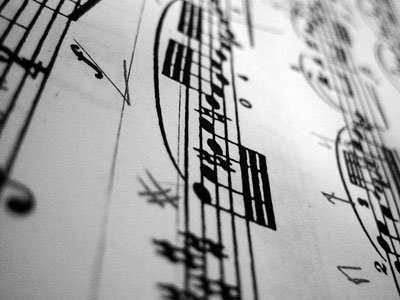All Nonfiction
- Bullying
- Books
- Academic
- Author Interviews
- Celebrity interviews
- College Articles
- College Essays
- Educator of the Year
- Heroes
- Interviews
- Memoir
- Personal Experience
- Sports
- Travel & Culture
All Opinions
- Bullying
- Current Events / Politics
- Discrimination
- Drugs / Alcohol / Smoking
- Entertainment / Celebrities
- Environment
- Love / Relationships
- Movies / Music / TV
- Pop Culture / Trends
- School / College
- Social Issues / Civics
- Spirituality / Religion
- Sports / Hobbies
All Hot Topics
- Bullying
- Community Service
- Environment
- Health
- Letters to the Editor
- Pride & Prejudice
- What Matters
- Back
Summer Guide
- Program Links
- Program Reviews
- Back
College Guide
- College Links
- College Reviews
- College Essays
- College Articles
- Back
Music Theory
“Without music, life would be a mistake,” says Friedrich Nietzsche, the German philosopher. For many people, music is a way for them to articulate themselves when words cannot. Not only does music provide entertainment and pleasure, but it is a successful career for many. Did you know that over 173,000 people in the world have prosperous occupations as working musicians? But how did these music maniacs master music? Let’s take a closer look at all of the insane connections and math behind the basics, scales, and chords.
Envision yourself sitting at a piano, killing it on the keys. Now how did you learn the music you’re playing? Of course you’ll have to know how to read music before you can legitimately play. You can definitely play without reading sheet music and using your ear instead, but that is, without a doubt, a very bad habit to get into, as you will generate new and most likely incorrect connections. For example, you might think a D major chord consists of a D, G flat, and A, when really it is made up of a D, F sharp, and an A. For the treble clef (bottom to top), the lines read EGBDF and spaces read FACE. For the bass clef, the lines read GBDFA and spaces read ACEG. As far as rhythm goes, every whole note equals four quarter notes or two half notes. A half note equals either two quarter notes or four eighth notes. The time signature tells how many beats there are per measure (top number) and what note gets the beat (bottom number). The key signature tells you what key you’re in by telling you the sharps or flats. The signature for sharps can read as far as FCGDAEB and the signature for flats can read as far as BEADGCF.
How can you possibly extrapolate the math behind playing music without knowing the scales? Major scales have a total of cheerful sounding eight notes; the intervals consist of: whole step, whole, half step, whole, whole, whole, half. Minor scales consist of eight glum sounding notes as well; the intervals consist of: whole, half, whole, whole, half, whole, whole. Major and minor scales are very different sounding, but both are beautiful. Major pentatonic scales consist only of five notes; the intervals consist of: whole, whole, minor third, whole, minor third. Minor pentatonic scales consist of five notes as well; the intervals consist of: minor third, whole, whole, minor third, whole.
“There, in the chords and melodies is everything I want to say. The words just jolly it along. It’s always been my way of expressing what, for me, is inexpressible by any other means,” says David Bowie, English musician. Did you know that every note of a song is just a chord fragmented into different pieces? Blocked chords, the most simple ones, are three or more harmonizing notes played at the same time. Arpeggios are simply blocked chords but each note is played one at a time, fast or slow, from the bottom to the top or vice versa. Arpeggios that are sung quickly make you sound like a bird, which shows an incredibly athletic voice. But what makes up chords? Intervals. The most basic inversions are Major/minor 2, M/m3, Perfect 4, P5, M/m6, M/m7, P8 (also known as an octave). You can even have chords and different inversions played at the same time. You play the main chord written and then read the interval (number) next to it.
Do you understand how the fundamentals can permit you to play just about anything? Who doesn’t appreciate the athletic scales performed by a pianist? Don’t you esteem how chords reflect the written music in three or four simple notes played simultaneously? Music theory may come across as incredibly confusing at first, but once you understand its building blocks, these breathtaking ballads will become second nature. Psalm 95:1 says, “Come, let us sing for joy to the Lord; let us shout aloud to the Rock of our salvation.” God intended us to have music and use it for his glory. It’s only right that we enjoy that wonderful gift and truly give him the worship he deserves.

Similar Articles
JOIN THE DISCUSSION
This article has 0 comments.

I am such a nerd when it comes to music. Pretty much all I thnk about is music and the thery behind it. I hope that people will realize how complex music is and how extraordinary it is.